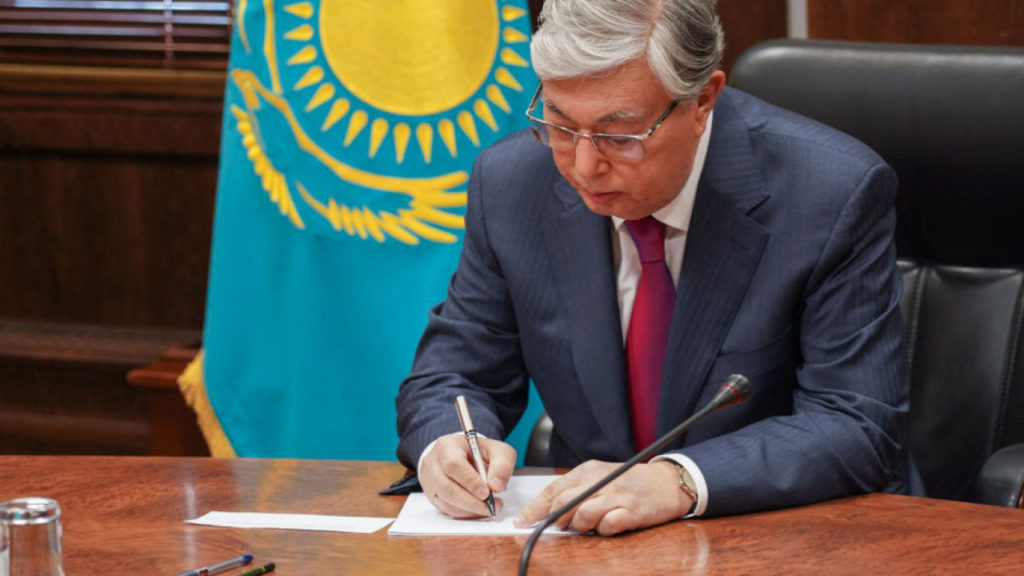NUR-SULTAN – Kazakh President Kassym-Jomart Tokayev signed a law making ministers and akims (governors) responsible for corruption among their direct subordinates Nov. 28. The law introduces amendments that will oblige ministers and governors to resign if the top officials in their institutions are found guilty of corruption.
“If we seriously want to eradicate corruption, then, in my opinion, state bodies’ heads should resign if their subordinates commit corruption crimes. To accept or not accept the resignation is the prerogative of the Head of State, but a resignation letter is a mandatory measure,” said Tokayev, according to the presidential website.
The new version of the law obligates a supervisor to resign within 10 calendar days of an employee’s conviction of corruption.
“From now on, political civil servants, which include ministers and their deputies; regional akims (governors) and their deputies; akims (mayors) of Nur-Sultan, Almaty and Shymkent; and district akims are required to resign if their direct subordinates commit a corruption crime,” said First Deputy Chairman of the Anti-Corruption Service Olzhas Bektenov.
The new law envisages two types of responsibilities. The first is the responsibility of political civil servants to resign after a court verdict coming into force in case of a corruption offence by subordinates appointed by that political civil servant.
The second is a disciplinary responsibility for corruption violations committed by employees who are directly subordinate to political civil servants. This includes administrative employees such as department directors, office heads and division heads.
The minister will be liable if his deputies, executive secretary, heads of staff or regional divisions commit offences. The vice minister is responsible for the heads of supervised departments and independent structural units. Akims of regions or cities of national significance, including the capital, are responsible for their deputies, chiefs of staff and akims of the districts.
According to Bektenov, the supervisor must resign regardless of whether he or she appointed the employee in question. The decision to accept the resignation lies with the president.
“For the first time in the history of independent Kazakhstan, the responsibility of the supervisor for his subordinate is stated at the legislative level,” he said.
Under the previous law, a person was liable only if he himself committed the violation. This means there were no legal grounds for disciplining heads of state bodies whose employees were systematically corrupt.
The new amendments are introduced in eight codes and 19 laws on civil service and anti-corruption practices.
Annually, more than 2,000 corruption crimes are registered in Kazakhstan and more than 1,000 people are held accountable on average.

